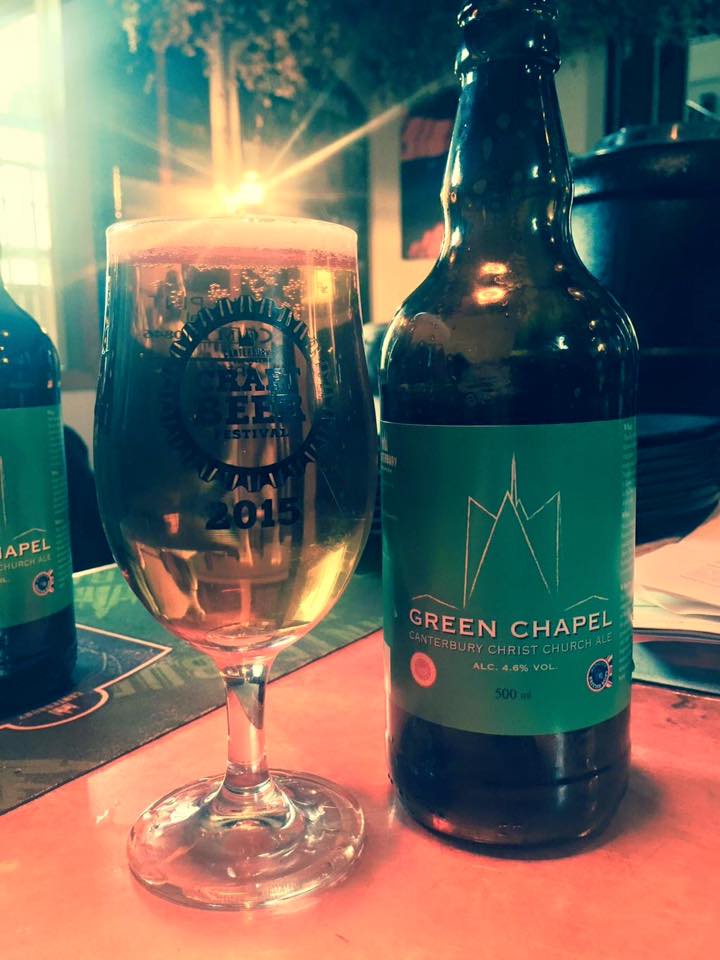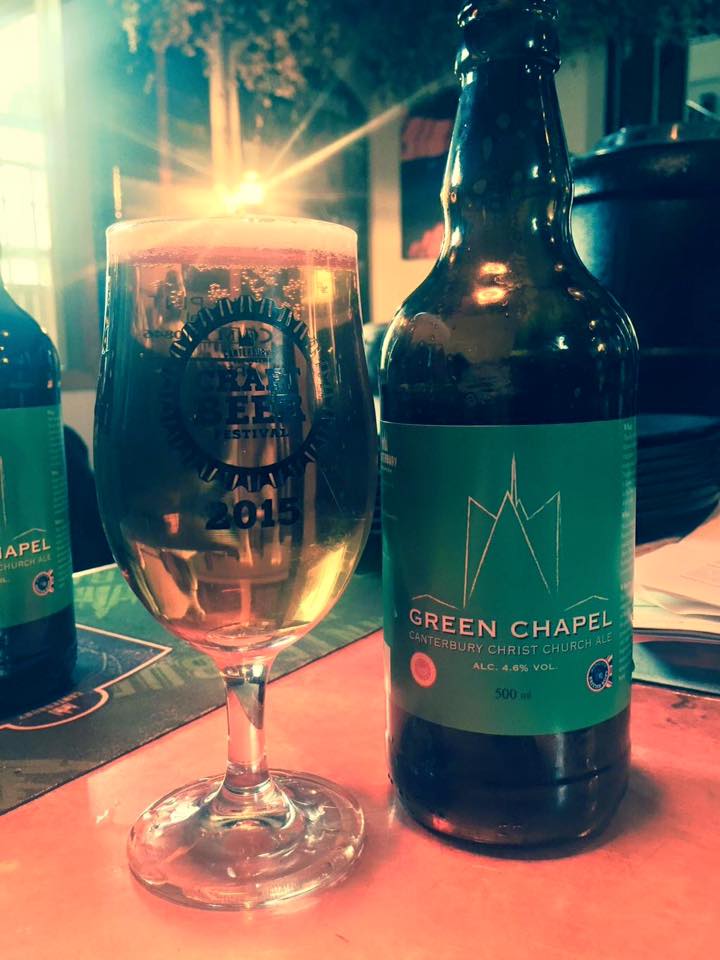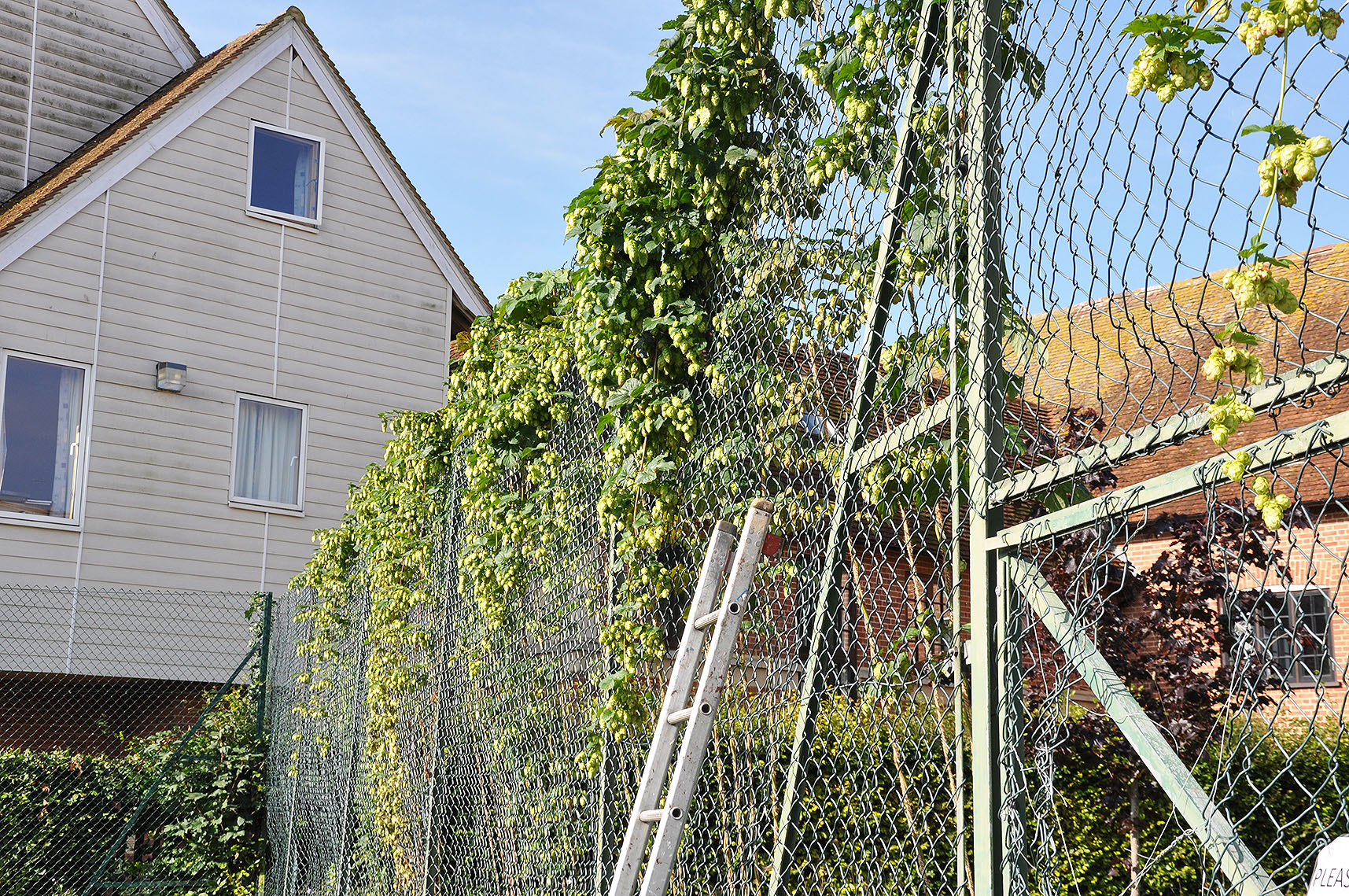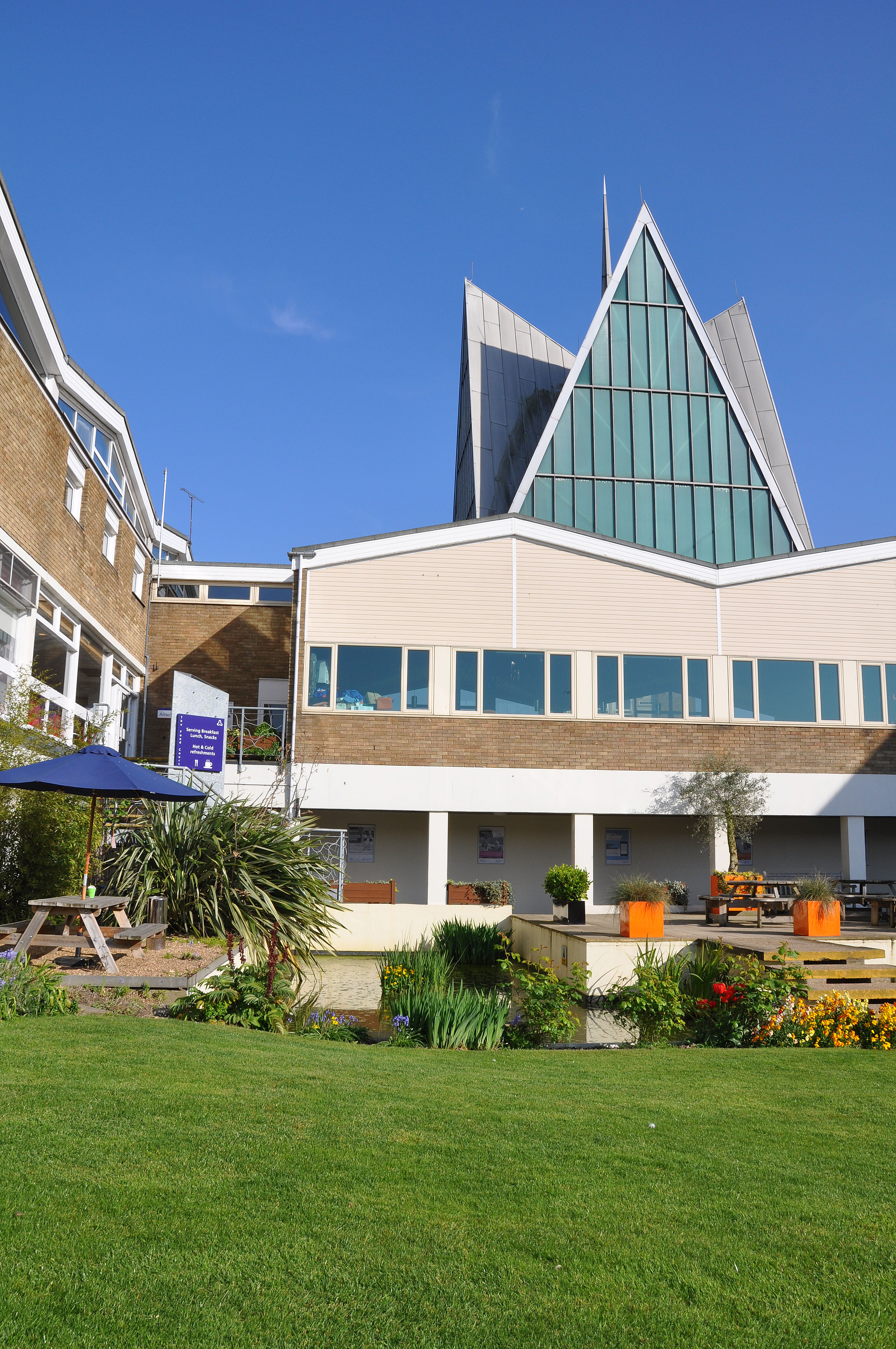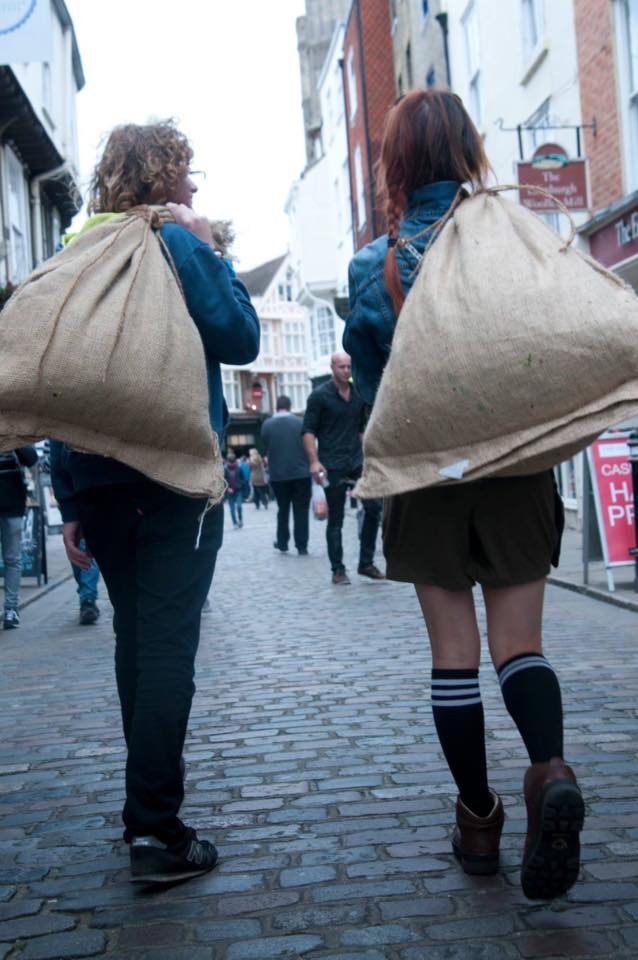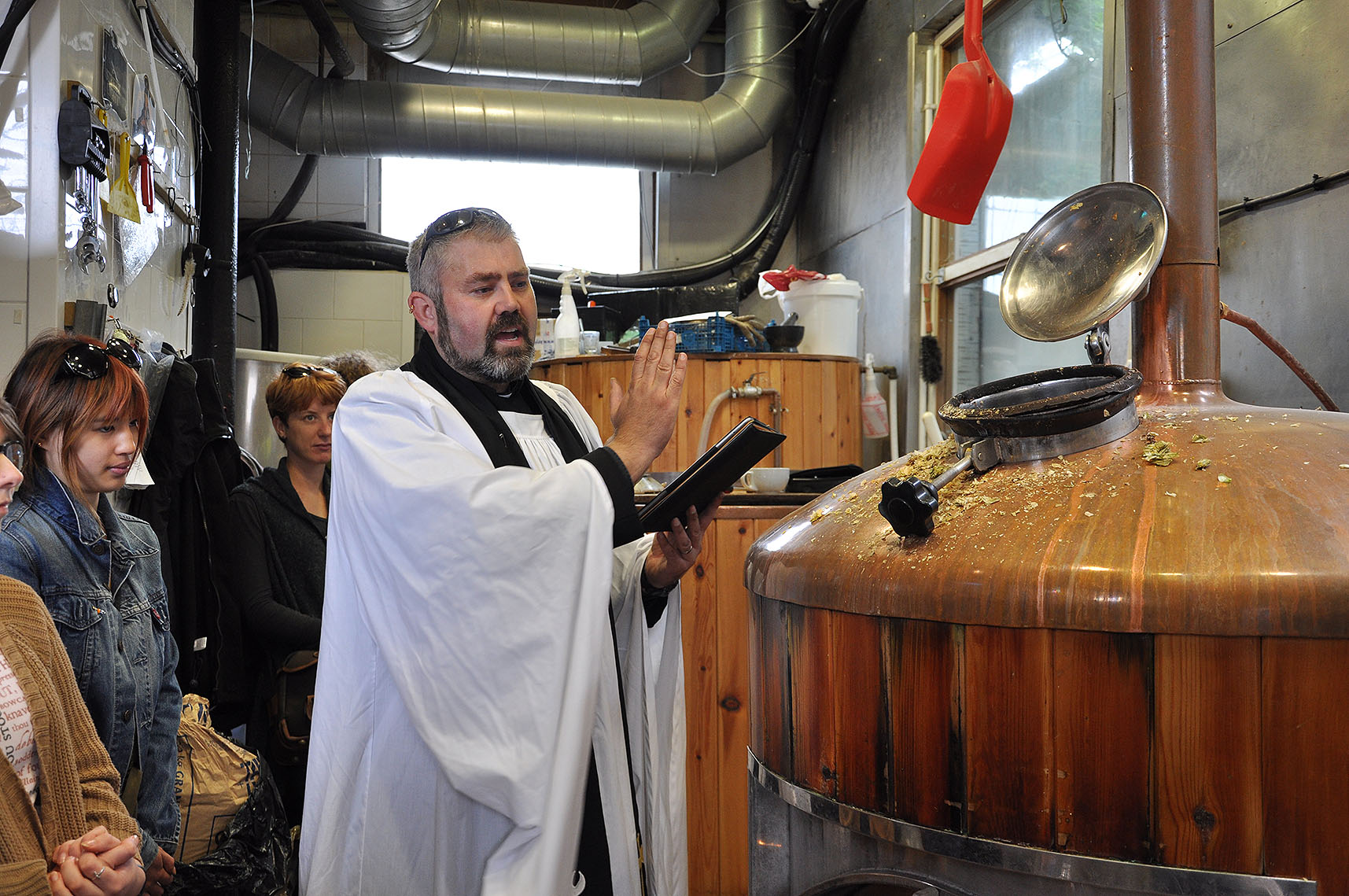Green Chapel Ale is new this year and is the start of something amazing! It represents the culmination of a collaborative effort and everyone involved has pulling in the same direction to do something unique and special. It is a part of the ‘Beer, Bread and Honey’ project, which itself is part of the ‘Bioversity’ Initiative that is aimed at raising awareness about issues such as sustainability and biodiversity.
All aspects of this beer were produced locally. The hops were grown locally on campus grounds and harvested by a team of students and staff, the labelling was designed by CCCU students and the brewing process itself was tasked to a local Canterbury micro brewer, ‘Canterbury Brewers’. It is truly a local endeavour by local people.
How did this process come about? It started with a Hop, Skip and a Jump.
The hops that were used in this process were the Wye Challenger, Fuggle and East Kent Goldings variety, the latter of which enjoys a PDO (Protected Designation of Origin) status meaning Canterbury Christ Church University is one of the few places where these type of hops can be grown.
The project was spearheaded by Sustainability Projects Officer, Alex Metcalfe, and the choice of hops was made in consultation with Dr Peter Darby, who is a prominent researcher into the cultivation and preservation of hop varieties. Upon his recommendation, additional input was obtained from notable blogger, Sophie Atherton, who very kindly offered her own advice and opinions on the project. It was later that Canterbury Brewers came on board who provided the means to brew and bottle the beer.
Sara O’Hara, a Senior Lecturer in Media, Arts and Design came on board with a view to the actual design of the new label and James Rose and Jamie Glover, both currently CCCU students, are responsible for the design of the striking new label for the Green Chapel Ale – inspired by our own CCCU Chapel Roof. The design is bold and crisp, much like the ale contained within.
By harvest time, it was time to collect the hops. A team of student volunteers, led by Chaplain David Stroud attended to the harvest, but without the benefit of an oast house, (a drying kiln to preserve the hops), they needed to be harvested and transported to the brewery as soon as possible. Freshly harvested hops have a very limited window, roughly 4-6 hours, before they become unsuitable to be used in brewing so it was a rather mad ‘race to the finish’ to get them collected and transported to the brewery in time! In many ways, the lack of an oast house contributed to the beer, as the rich oils that are normally lost from the hops during drying were retained and infused into the beer itself.
In keeping with the traditions, the ale was blessed by the resident chaplain, David Stroud which may have turned out to be a very good thing. An accident was reported to have taken place with the couriers en route to the bottling plant and one of the two containers received substantial damage, causing the entire contents to be spoiled. One of these containers housed the one and only batch of Green Chapel Ale and the entire project could have been lost. Fortuitously, either through good luck, karma or divine intervention, the Green Chapel Ale survived its brush with oblivion and went on to be bottled and labelled up ready to be enjoyed.
Historically, CCCU is not the first establishment to produce Beer on the site of the old Abbey. The first recorded production of hopped beer was from the Alfred Beer & Co Brewery that operated from 1770. This is unusual insofar as St Augustine’s was once a Benedictine monastery and the monks of that order enjoy a particular fame as brewers and are credited with the initial innovation of adding hops to beer back in 800AD in Germany. However as hops farming only came to Kent in the 15th Century when the golden age of Benedictine monk brewers was over, the monks of St Augustine did not brew beer here. They did brew other ales as evidenced by the old brewhouse and vineyard built around 1309-1320. The monks themselves remained resident until St Augustines was disbanded by King Henry VIII in 1583 during the dissolution of the monasteries.
Green Chapel Ale is available for a limited time at The City Arms, in Canterbury, and will be featured at some upcoming events on campus. To find out more about it, or get involved with future projects such as these, just get in touch with us and we can take it from there.
by student blogger and SGO Communications Officer, Chris Bamber
 Sustainability
Sustainability Felicity Brambling-Wells
Felicity Brambling-Wells 1310
1310